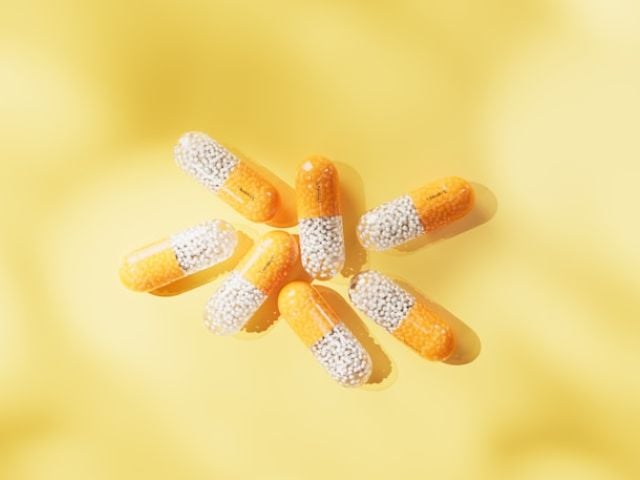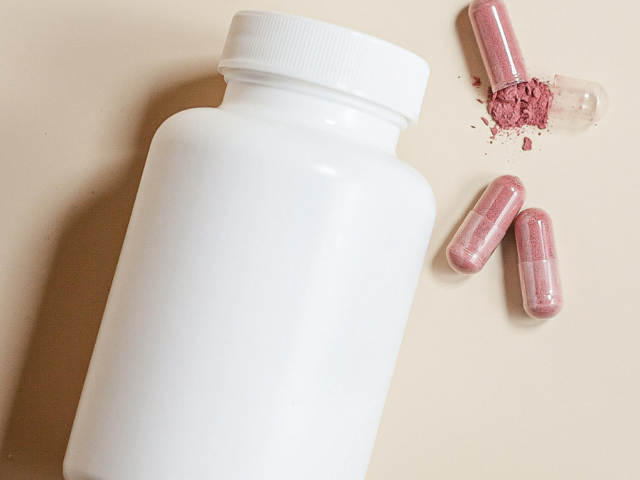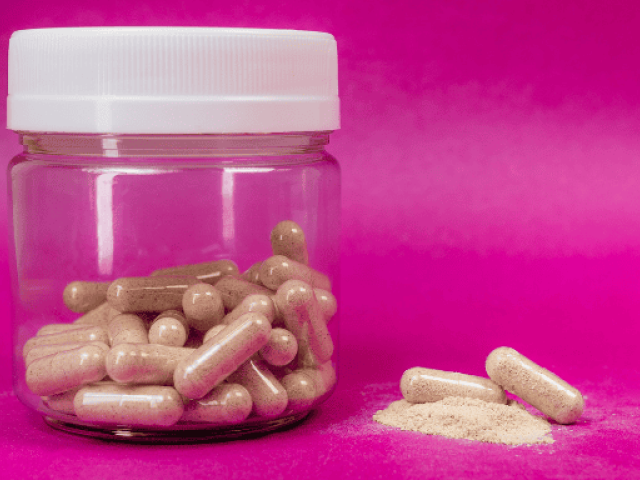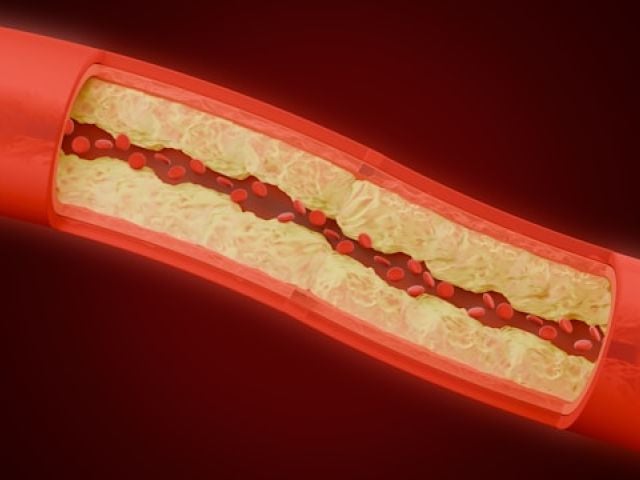
Does Black Pepper Boost Turmeric Benefits? What Experts Say
You’ve probably heard that adding black pepper to turmeric makes it work better. But does this popular food pairing really live up to the hype? The science behind turmeric and black pepper is more impressive than you might expect.
Research shows that black pepper doesn’t just slightly improve turmeric absorption. It creates a dramatic shift in how your body processes curcumin, the main active compound in this golden spice.
Key Takeaways
- Black pepper increases curcumin bioavailability by 2,000% when taken together with turmeric.
- The compound piperine in black pepper blocks enzymes that normally break down curcumin before your body can use it.
- Most studies use a ratio of 100:1 (turmeric to black pepper), or about 20mg of piperine with 2 grams of curcumin.
- While generally safe, high doses of this combination may cause digestive upset or interact with certain medications.
The Curcumin Absorption Challenge
Turmeric contains an average of 3.14% curcumin by weight1, which means you’d need to consume large amounts of this spice to get therapeutic doses of its active compound. But quantity isn’t the only problem.
Your liver and intestines rapidly metabolize curcumin when you consume it alone. Studies show that “the systemic bioavailability of curcumin after oral intake can be expected to be virtually zero2.” This means most of the curcumin you consume gets broken down and eliminated before it can provide health benefits.
Why Turmeric is Paired with Black Pepper
The benefits of turmeric depend on curcumin reaching your bloodstream in an active form. When metabolic enzymes convert curcumin into water-soluble compounds too quickly, your cells never get a chance to use it.
This bioavailability problem explains why traditional Indian cooking often pairs turmeric with black pepper. Ancient culinary wisdom anticipated what modern science would later confirm.
🫚 Our Bioavailable Turmeric Formula
Jinfiniti’s Extra Strength Turmeric+ combines curcumin with black pepper extract, boswellia, ginger, and quercetin. Each capsule delivers 95% curcuminoids plus the exact piperine ratio clinical studies validate for maximum absorption.
How Black Pepper Enhances Turmeric Absorption
Black pepper contains approximately 5% piperine by weight, the alkaloid that gives this spice its characteristic bite. Piperine works through multiple pathways to keep curcumin available in your body longer.
Research shows that piperine inhibits key metabolic enzymes, particularly CYP3A4, which normally breaks down curcumin3. It also reduces glucuronidation, the process your liver uses to convert curcumin into less active forms for elimination.
Piperine increases intestinal membrane permeability too. This allows more curcumin to pass through your gut lining and into your bloodstream. The compound also blocks P-glycoprotein pumps that would otherwise expel absorbed curcumin from your cells.
The 2,000% Bioavailability Increase
Clinical trials demonstrate that just 20mg of piperine combined with 2 grams of curcumin increases bioavailability by 2,000%4. This dramatic change occurs within 45 minutes of consumption.
One research paper described the mechanism simply: “Black pepper slows down the metabolism of curcumin and allows it to stay in that form for a longer period of time so that more of it can be absorbed.”
Health Benefits of Combining Turmeric and Black Pepper
The curcumin and piperine combination provides several researched benefits when bioavailability increases.
1. Anti-inflammatory Effects
A comprehensive analysis found that curcumin supplementation reduces key inflammatory markers including C-reactive protein, TNF-α, and IL-65. In one clinical trial, participants receiving 500mg curcumin plus 5mg piperine twice daily showed significant reduction in weakness and other symptoms6.
The anti-inflammatory properties may help with conditions like arthritis. Research suggests modest improvements in joint comfort that could be comparable to some NSAIDs.
2. Antioxidant Protection
Studies show enhanced total antioxidant capacity and reduced oxidative stress markers when you combine turmeric and black pepper7. This includes decreased malondialdehyde levels and improved superoxide dismutase activity.
3. Metabolic Support
Clinical trials demonstrate improved fasting blood glucose, insulin sensitivity, and lipid profiles. The combination shows benefits for weight management and waist circumference reduction8.
4. Muscle Recovery
Athletes experienced decreased delayed-onset muscle soreness and enhanced muscle protein synthesis markers following exercise when supplementing with this combination9.
🧬 MORE TURMERIC HEALTH INSIGHTS
- Choosing between kitchen staples? Turmeric vs ginger have different anti-inflammatory strengths worth knowing about.
- Whole root or extract makes a real difference. Find out whether curcumin or turmeric root fights inflammation more effectively.
- Compare turmeric and boswellia, two herbal compounds that work differently in your body for joint and digestive health.
What’s the Right Ratio of Black Pepper to Turmeric?
Most clinical research uses a specific proportion that balances effectiveness with safety. The table below shows common ratios tested in scientific studies.
| Turmeric/Curcumin Amount | Black Pepper/Piperine Amount | Ratio |
|---|---|---|
| 2,000 mg curcumin | 20 mg piperine | 100:1 |
| 500 mg curcumin | 5 mg piperine | 100:1 |
| 1 teaspoon turmeric (cooking) | 1/4 teaspoon black pepper | 4:1 |
Evidence-Based Dosage Guidelines
The Joint FAO/WHO Expert Committee on Food Additives establishes an Acceptable Daily Intake of 0 to 3 mg curcumin per kilogram of body weight10. For a 150-pound person, this translates to approximately 200mg of curcumin daily.
Clinical studies typically use doses of 500 to 2,000mg turmeric daily, with research showing safety up to 8,000mg per day for short-term use. When adding black pepper to turmeric supplements, aim for the 100:1 ratio that studies validate.
Are There Risks or Side Effects?
Research from Oregon State University’s Linus Pauling Institute notes that “serious adverse effects have not been reported in humans taking high doses of curcumin” up to 12g daily11. Most people tolerate this combination well.
Some individuals experience mild digestive upset, yellow-colored stool, or headache at high doses. These effects typically resolve when you reduce your dose.
Recent reports have identified rare cases of liver injury linked to turmeric supplements, particularly those enhanced with piperine. Italian health authorities documented over 100 adverse effect reports, including 15 cases of hepatitis potentially related to turmeric consumption12.
Who Should Be Cautious
Certain groups should consult healthcare providers before using turmeric and black pepper supplements:
- People with bile duct disease or gallstones
- Pregnant and breastfeeding women
- Anyone taking anticoagulant medications
- Individuals scheduled for surgery (turmeric may increase bleeding risk)
- Those on immunosuppressants or cancer drugs
Piperine can interact with various medications by affecting how your liver processes them. This means supplements may alter drug effectiveness or increase side effects.
Watch for warning signs like yellowing of skin or eyes, severe abdominal pain, dark urine, pale stools, or persistent fatigue. These require immediate medical attention.
Simple Ways to Use Turmeric and Black Pepper Together
You don’t need supplements to get the potential health benefits of turmeric when paired with black pepper. These practical approaches make it easy to combine turmeric and black pepper in your daily routine.
Cooking applications:
- Add 1/4 teaspoon black pepper to every teaspoon of turmeric in recipes
- Include both spices in scrambled eggs, roasted vegetables, and soups
- Create a turmeric-pepper seasoning blend for regular use
- Make golden milk lattes with a pinch of black pepper
Absorption tips:
- Consume turmeric with 15+ grams of fat to improve absorption further
- Pair with ginger for potential synergistic effects
- Heat turmeric briefly before consuming to increase bioavailability
- Consider quality turmeric curcumin supplements that include both compounds in researched ratios
Traditional Indian cuisine naturally combines these spices with healthy fats like ghee or coconut oil. This triple approach (curcumin, piperine, and fat) may offer the best absorption.
Some people prefer starting with food sources before trying supplements. The average Indian diet provides 2 to 2.5 grams of turmeric daily, equivalent to 60 to 100mg of curcumin. While this amount is lower than supplement doses, it still offers health benefits when consumed with black pepper and fat.
Bottom Line
Black pepper genuinely transforms how your body uses turmeric. The 2,000% increase in curcumin bioavailability when you combine turmeric and black pepper ranks among the most dramatic natural absorption improvements in nutrition science.
This combination offers real anti-inflammatory and antioxidant benefits backed by clinical research. Most people can safely incorporate both spices into their diet through cooking or quality supplements. Start with food-based approaches and consider consulting a healthcare provider before taking high doses, particularly if you take medications or have underlying health conditions.
Referenced Sources
- https://www.ncbi.nlm.nih.gov/books/NBK92752/ ↩︎
- https://pmc.ncbi.nlm.nih.gov/articles/PMC10838102/ ↩︎
- https://pmc.ncbi.nlm.nih.gov/articles/PMC3151395/ ↩︎
- https://pmc.ncbi.nlm.nih.gov/articles/PMC3918523/ ↩︎
- https://www.sciencedirect.com/science/article/abs/pii/S1043466623000224 ↩︎
- https://pmc.ncbi.nlm.nih.gov/articles/PMC9167899/ ↩︎
- https://www.sciencedirect.com/science/article/abs/pii/S0891584922009704 ↩︎
- https://pubmed.ncbi.nlm.nih.gov/39478418/ ↩︎
- https://pmc.ncbi.nlm.nih.gov/articles/PMC9596560/ ↩︎
- https://pmc.ncbi.nlm.nih.gov/articles/PMC9353077/ ↩︎
- https://lpi.oregonstate.edu/mic/dietary-factors/phytochemicals/curcumin ↩︎
- https://cot.food.gov.uk/First%20draft%20statement%20on%20the%20potential%20risk%20to%20human%20health%20of%20turmeric%20and%20curcumin ↩︎

Get weekly health insights and exclusive offers by joining our newsletter.










